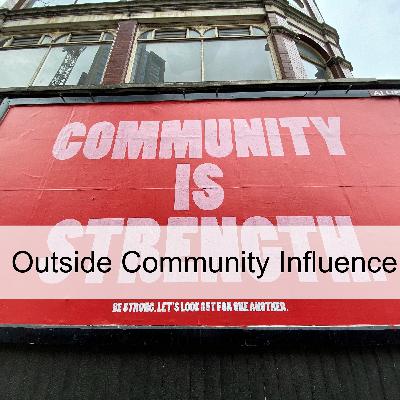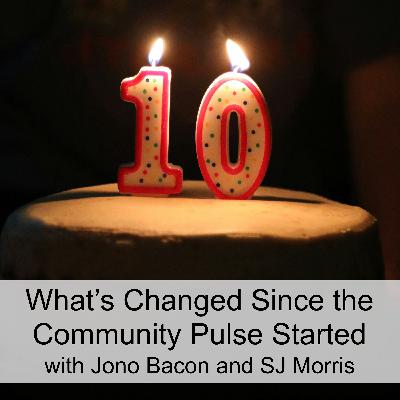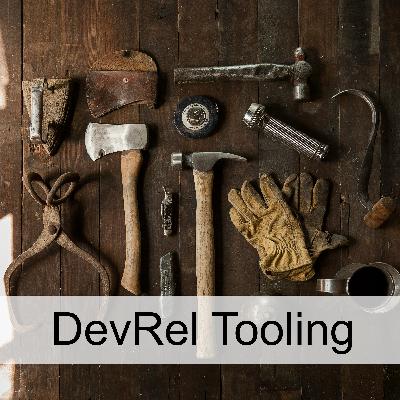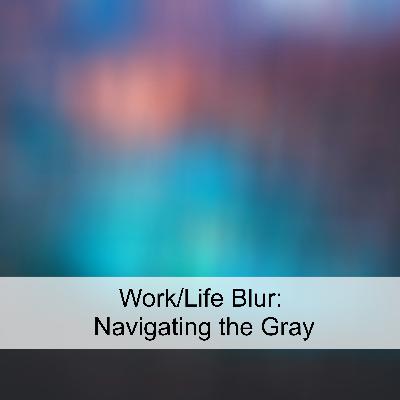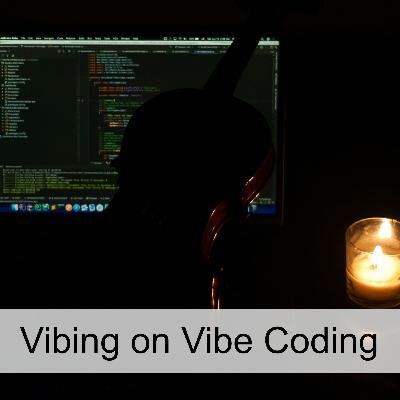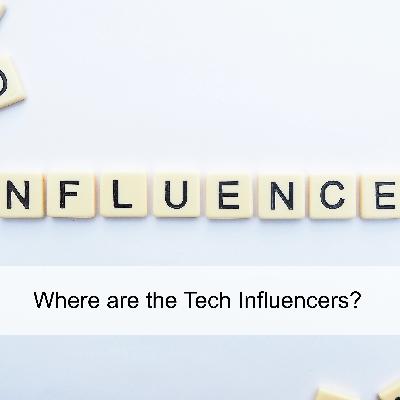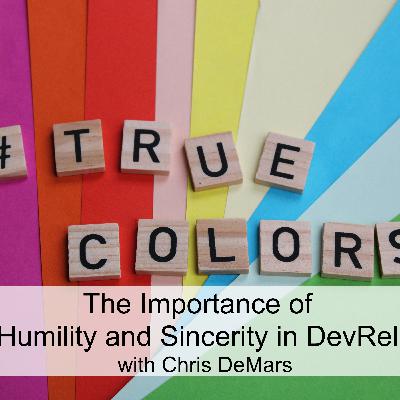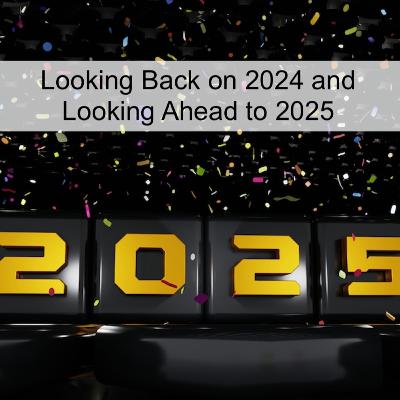Community Conferences - What to know? (Ep 90)
Description
Over the past few years, we’ve seen conferences ebb and flow. Some community-run conferences have evolved into new things, new ones have sprouted up while other annual favorites have sadly gone extinct. What goes into a community-led conference? How does someone get involved? Let’s take a look!
1. The Role of Community Conferences in DevRel:
Jason Hand introduces the topic, highlighting the evolution of community conferences over the years. While some conferences have grown, others have disappeared, leaving the question of what sustains such events.
Wesley Faulkner discusses the importance of understanding the origins and logistics behind community conferences, including the passion and effort required to make them happen.
2. Guests’ Journeys into Organizing Community Events:
Matty Stratton:
Started organizing DevOpsDays Chicago after realizing the need for a local event in his area. His motivation was to be involved in something he cared about by taking the lead in creating it.
Shared how his experience organizing swing dance events shaped his community involvement philosophy: organizing allows him to stay engaged and create meaningful connections.
Mo McElaney:
Entered tech after a career switch during the 2009 recession. She started organizing events through a nonprofit teaching women to code, which opened doors to organizing Ruby conferences and others.
Her lack of experience in tech initially became a motivator for organizing conferences, as it allowed her to connect with experts and learn from them.
3. Why Organizers Keep Coming Back:
Mo McElaney: Community conferences create meaningful connections and friendships. They are also a way to spot industry trends by seeing what topics speakers submit for presentations.
Matty Stratton:
Highlighted the emotional rewards of helping others and witnessing life-changing moments for attendees, such as finding jobs or negotiating better salaries through transparent discussions at events like DevOpsDays.
Shared the struggles of stepping back from organizing long-running events due to the personal attachment and friendships developed over the years.
4. Impact of COVID-19 on Community Conferences:
Matty Stratton and Mo McElaney agree that COVID-19 significantly disrupted the conference landscape:
Many community conferences either downsized, paused, or failed to recover due to funding challenges.
The corporate sponsorship landscape has shifted, prioritizing events with high ROI and attendee numbers over smaller, more impactful community-led events.
Wesley Faulkner observes that increased workloads and layoffs post-COVID have further limited individuals’ capacity to attend or organize events.
5. Challenges in Organizing Community Conferences:
Funding:
Conferences often struggle to secure sponsorships, especially in today’s economic climate.
Corporate funding focuses on large-scale events, leaving smaller, localized conferences underfunded.
Volunteer Management:
Organizers face difficulties when volunteers fail to deliver on their commitments. Unlike employees, volunteers can’t be held accountable in the same way.
Mentoring and transitioning leadership roles is often overlooked, leading to burnout or gaps when organizers step away.
Changing Needs and Expectations:
Conferences that fail to adapt post-COVID may struggle to thrive. The shift towards virtual and hybrid formats requires innovation to stay relevant.
6. Refactoring the Community Conference Model:
Matty Stratton and Jason Hand propose the need for reimagining how conferences operate:
Smaller, localized events can reduce costs and environmental impact while fostering deeper connections.
Events like outdoor retreats (e.g., DevOpsDays Rockies incorporating the natural setting of Colorado) demonstrate creative ways to bring people together.
Mo McElaney emphasizes the importance of paying speakers and organizers for their work, advocating for a more sustainable model that values the labor involved in organizing community events.
Key Takeaways:
Community Conferences Have Evolved:
Post-COVID, conferences face new challenges, including funding limitations, organizer burnout, and changing attendee expectations.
The importance of maintaining the participatory, community-driven spirit remains central to their success.
Innovative Models Are Needed:
Smaller, more targeted events or creative formats like retreats could address the current barriers to large-scale conferences.
Organizers need to adapt to funding realities by prioritizing impactful, cost-effective event models.
Sustainability and Support Are Crucial:
Paying organizers and speakers is essential to sustaining long-term involvement in community conference planning.
Mentorship and succession planning are critical to ensuring the continuity of events and avoiding burnout.
Advice for Aspiring Conference Organizers:
Clarify Your Capacity:
Be upfront about your time, skills, and communication preferences to set realistic expectations for yourself and the organizing team.
Understand the Commitment:
Ask detailed questions about the role’s expectations and assess whether it aligns with your availability.
Know Your Motivation:
Reflect on why you want to organize events. Your passion for the community will help you persevere during challenging moments.
Closing Thoughts:
Community conferences are evolving but remain a vital part of the DevRel ecosystem.
Collaboration, innovation, and sustainability will ensure these events continue to thrive in the changing landscape.
Final Quote:
“There’s nothing you can do that can’t be done.” – John Lennon
Keywords:
Community Conferences
DevRel (Developer Relations)
Organizing Events
Post-COVID Challenges
Funding
Volunteers
Leadership
Sponsorship
Community Engagement
Hybrid Events
Local Events
Compensation
Event Sustainability
Speaker Fees
Community Building
Mentorship
Innovation
Corporate Sponsorship
Emerging Trends
DevOpsDays
PyCon US
Rethinking Conference Models
Transcript
[00:00:00 ] Jason Hand: Over the past few years, we've seen conferences ebb and flow. Some community run conferences have evolved into new things. New ones have sprouted up, while other annual favorites have sadly gone extinct. What goes into community led conferences, and how does someone get involved? Let's take a look.
[00:00:20 ] Weslefy Faulkner: Conferences are such a big part of many DevRel programs. But where do they come from? Who puts them together and what really happens behind the scenes? We've gathered some of DevRel's event organizers who can help us out. Mo and Maddy, could you introduce yourself, starting with Mo?
[00:00:38 ] Mo McElaney: Hello! Thank you for having me.
[00:00:40 ] Mo McElaney: My name is Mo McElhaney. I work for IBM, leading the strategy of our open source AI developer programs in IBM Research. I ran a nonprofit teaching women to code from 2012 to 2018. I've spoken at conferences around the world.
[00:00:59 ] Mo McElaney: And I've [00:01:00 ] organized a bunch of different conferences over the years. Burlington Ruby, UX Burlington, Vermont Code Camp, Offline Camp, Abstractions Conf in Pittsburgh. And currently I'm on the contact committee for PyCon US and Ray Summit. And I'm on the board of the Vermont Technology Alliance.
[00:01:20 ] Matty Stratton: Great.
[00:01:20 ] Matty Stratton: I'm Matty. I currently run developer relations and growth for a company called Aiven. And I also have my own DevOps podcast, Arrested DevOps, on the topic of community conferences. I've spent my time as a conference speaker at all sorts of community events all over the world.
[00:01:36 ] Matty Stratton: I was the founder of DevOps Day Chicago, when that started. I've been a co-chair of the global team for DevOps days worldwide, and currently in an advisory role with that. I also help out with the content track for all day DevOps, and there's probably a bunch of other community related conferences that I'm forgetting about that I've helped out at some point over the years.
[00:01:58 ] Matty Stratton: And so if I didn't name your [00:02:00 ] event and I helped you I apologize, hit me on Twitter and yell at me. Excited to be back on Community Pulse.
[00:02:08 ] Weslefy Faulkner: You really have someone who loves the community when they can't remember all the things that they've done to help run conferences and help the community get together and.
[00:02:18 ] Weslefy Faulkner: Speaking to passion and thinking about why you're doing this. What is your specific answer? Why, what led you to organize conferences to start with you, Maddie?
[00:02:27 ] Matty Stratton: It's funny. And if I want to be a little introspective and honest, it's the same thing that I think brings me to organize. Anything is one of the ways that you can make sure you're involved in something is to run it.
[00:02:41 ] Matty Stratton: And I look back over the tim


